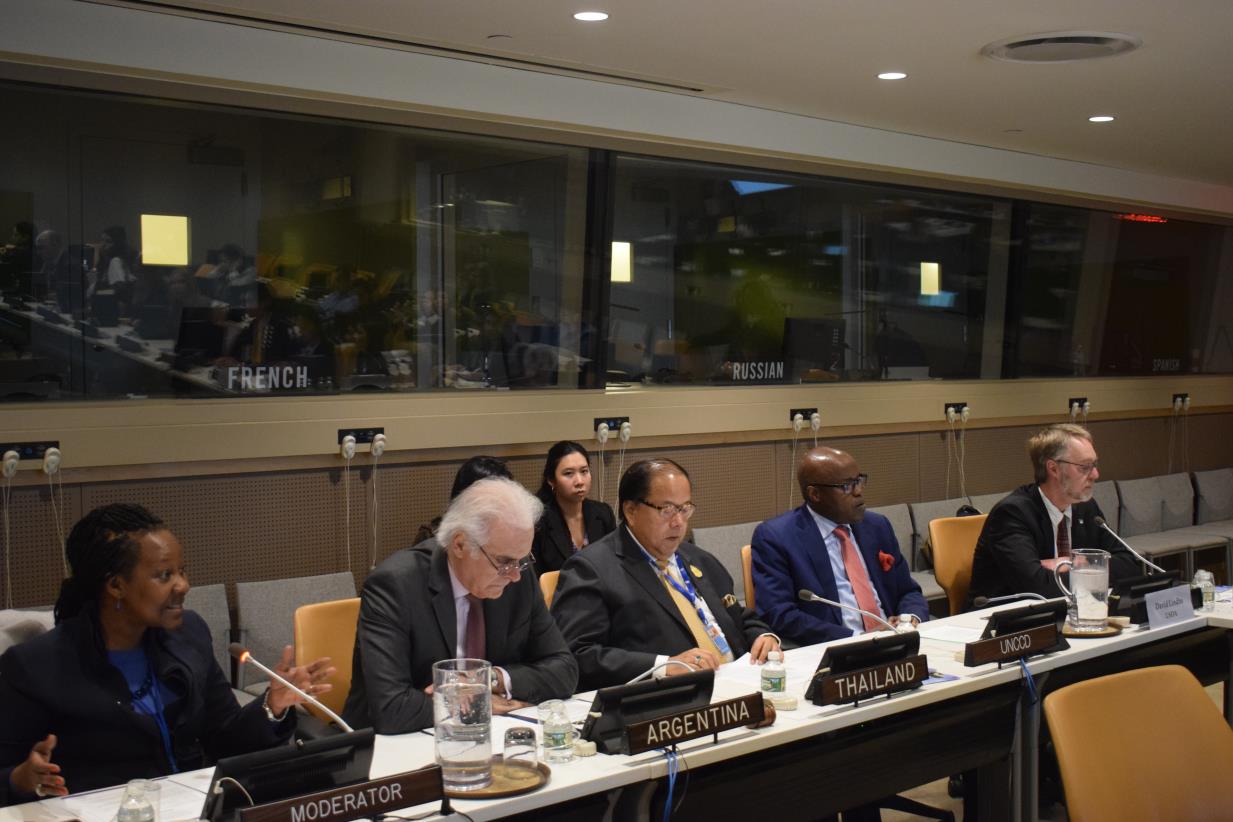Stop soil pollution to ensure progress on food security and sustainable development, says FAO at World Soil Day celebration

“Soils are a silent ally of sustainable development. To make sure the soil agenda is not forgotten, it must remain in the policy debate and action at the global and national level,” said Carla Mucavi, Director of the FAO Liaison Office to the United Nations, at the World Soil Day celebration on 3 December in New York.
Co-hosted by the Permanent Missions of Thailand, Argentina and El Salvador to the United Nations, Global Soil Partnership, FAO and the United Nations Convention to Combat Desertification (UNCCD), the event focused on the theme, “Be the solution to soil pollution,” recognizing the importance of soils for food security and nutrition, food safety, sustainable development and human health.
Moderating the event, Mucavi informed the critical role of healthy soils in the achievement of the 2030 Agenda for Sustainable Development and its direct impact in ending poverty, zero hunger, ensuring clean water, preserving biodiversity and more.
She also noted that, despite these essential functions of soil, 33 percent of the global land is moderately to highly degraded due to erosion, salinization, compaction, acidification, and chemical pollution of soils.
“It is urgent to reverse this trend, and this requires actions at the local, national, regional and global levels by governments and other stakeholders,” Mucavi said.
Ambassador Virachai Plasai, Permanent Representative of Thailand to the United Nations, opened the event and warned that we should not take soil for granted, as 95 per cent of the world’s food is born in soil.
“Soil is an essential source of purified drinking water, medicine, fuels, building materials for our homes, and a quarter of the world’s biodiversity. Without soil, we would lose these all,” Plasai said.
Martín García Moritan, Permanent Representative of Argentina to the United Nations, also delivered opening remarks, noting the relevance of soil health in the eradication of hunger and sustainable agriculture, which were among the priority themes discussed at the 2018 G20 Summit in Buenos Aires last week.
The event featured a panel discussion offering various perspectives on effective ways to preserve soil.
Natalia Rodriguez, FAO expert on Soil Contamination, informed that the major sources of soil pollution are human activities such as the failure to recycle 80 per cent of waste. She stressed the need for stricter policies and monitoring of soil pollution as well as awareness raising on the threat posed by soil pollution to human health and the ecosystem.
David L. Lindbo, Director of Soil and Plant Science Division at the US Department of Agriculture, informed that soils vary widely in characteristics across different environments and that a comprehensive and updated soil inventory can provide a foundation for sound decisions on soil management.
Melchiade Bukuru, Chief of the UNCCD office in New York, stressed that addressing land degradation is instrumental to combating numerous global challenges, especially food insecurity, poverty eradication, climate change adaptation, mitigation and resilience.
A group of Thai youth representatives, Nuchareeporn Boonrat and Pretawan Rukkan of Assumption University, also participated in the discussion and highlighted the importance of working together to stop soil pollution.
“When I see the flowers bloom, then I realize one of the greatest magic of soil. Soil is our precious resources and a shared responsibility of everyone,” Boonrat said.
World Soil Day has celebrated worldwide since 2014 on or around 5 December, a date chosen to honor His Majesty the late King Bhumibol Adulyadej of Thailand, a soil scientist. Healthy soils help sustain food production, mitigate and adapt to climate change, filter water, improve resilience to floods and droughts and more.
